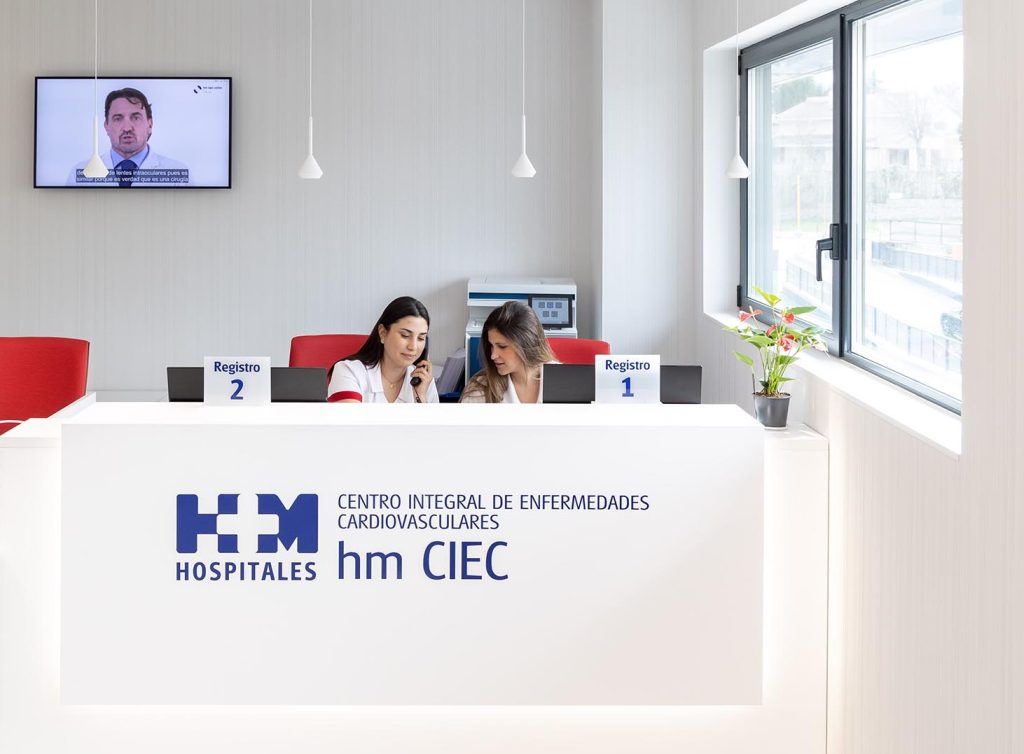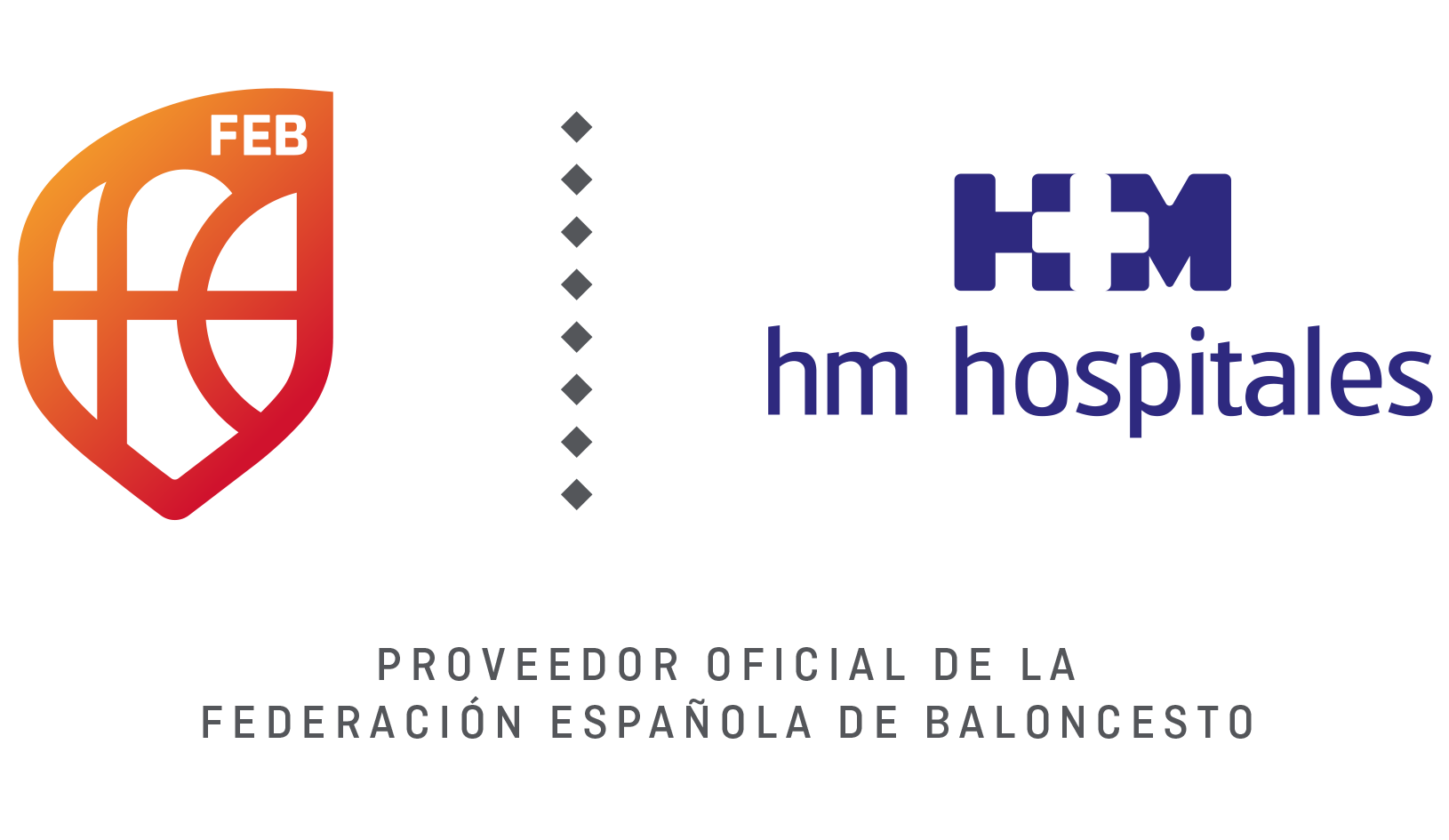• New spaces and rooms have been created to provide an efficient, accessible, and comfortable environment for both patients and professionals, with the Imaging Laboratory standing out as a key feature.
• In 2024, HM CIEC recorded 236,776 consultations and 4,003 admissions, performed 133 surgeries with extracorporeal circulation, and carried out 71 valve repair procedures.
• Additionally, 1,271 catheterisations and 616 electrophysiological procedures were performed, of which 292 were for atrial fibrillation and 139 were flutter ablations. Structural procedures were performed on 86 patients, with 33 patients receiving a valve device (TAVI).
• The Congenital Heart Disease and Paediatric Cardiology Unit conducted 5,298 consultations, 39 therapeutic catheterisations, and 36 highly complex surgeries with 0% mortality, including 25 cases with mechanical circulatory support (ECMO).
• Regarding cardiac imaging at HM CIEC in 2024, 2,732 CT scans and 1,509 MRIs were performed, demonstrating the centre’s intense diagnostic activity. This represents a 20% increase in CT activity and a 15% increase in MRI activity compared to the previous year.
HM Hospitales takes a step forward in enhancing its clinical capabilities by relocating to a new headquarters for the HM CIEC Comprehensive Cardiovascular Diseases Centre. For the first time, the centre has a dedicated building within HM Montepríncipe University Hospital. This new facility, located in the recently constructed building at the hospital, reinforces the Group’s commitment to providing the best possible healthcare. The new facilities primarily benefit patients, as they amplify diagnostic and clinical capacity for patients with cardiac and vascular conditions.
The revamped infrastructure of HM CIEC has been designed to provide comprehensive and multidisciplinary care in the diagnosis, treatment, and follow-up of cardiovascular diseases. It features new spaces and rooms to offer an efficient, accessible, and comfortable environment for both patients and professionals, including a state-of-the-art cardiovascular imaging laboratory to support all areas of HM CIEC.
“The new facilities at HM CIEC represent a significant qualitative leap for our patients and professionals, where we can guarantee high-quality care while providing a spacious, comfortable, and bright environment for our patients. The ability to combine a versatile space with highly skilled professionals allows us to address all aspects of cardiovascular health, including cutting-edge technology and innovative treatments. We are proud that HM CIEC now stands as a distinct entity, housed in a dedicated building within HM Montepríncipe University Hospital, enabling us to offer even more personalised care to our patients,” says Dr Leticia Fernández-Friera, Director of HM CIEC.
Since its launch 13 years ago, HM CIEC has embodied a model to follow by integrating the prevention, diagnosis, and treatment of cardiovascular disease in a transversal manner. In fact, this original healthcare management model by HM Hospitales is widely emulated by its competitors. Another key to its success lies in its organisation, which integrates all cardiology specialties, including clinical cardiology, imaging, electrophysiology, haemodynamics, cardiac surgery, and congenital and paediatric cardiology. It boasts teams of nationally and internationally renowned professionals, alongside advanced imaging and therapeutic technology, ensuring the highest quality of care through a transversal approach and an organisation of excellence.
With its new facilities, HM CIEC strengthens its position as one of the most advanced centres for treating patients with heart conditions and a national and international benchmark in diagnosis, treatment, and research. Its approach is rooted in a comprehensive and multidisciplinary model, supported by the technological and human capabilities with which HM CIEC is equipped.
New diagnostic imaging area and expansion of clinical facilities
The new HM CIEC facilities are structured around a consultation area dedicated to clinical assessment and patient follow-up, including subspecialties such as clinical cardiology (adult and paediatric), organised into specialised units, cardiac electrophysiology, cardiac surgery, angiology, and vascular surgery. Specifically, seven fully equipped consultation rooms have been set up to meet the needs of patients.
Additionally, a large cardiovascular diagnostic area has been created, featuring a new Cardiovascular Imaging Laboratory, a pioneer in private healthcare. This space includes the necessary imaging technology to address cardiovascular health and disease (transthoracic echocardiography, exercise echocardiography, 3D echocardiography, and vascular ultrasound), alongside advanced post-processing technology and imaging specialists who support cardiologists. This area also centralises the tools required for diagnosing any cardiac pathology, such as conventional ergometry, gas analysis, and tilt tests.
This organisation ensures an efficient workflow, optimising personalised patient care and streamlining medical decision-making.
Specialised units for personalised care
The new HM CIEC headquarters houses various multidisciplinary units specialising in specific cardiovascular pathologies, including valvular heart disease, heart failure, arrhythmias, cardiac rehabilitation, familial cardiomyopathies, congenital heart disease, and cardiovascular risk, among others.
HM CIEC has a highly qualified medical and nursing team specialised in cardiovascular care, including clinical cardiologists, electrophysiologists, cardiac and vascular surgeons, haemodynamicists, and cardiac imaging specialists. Continuous training and a commitment to research ensure the application of the most innovative and effective treatments for the benefit of patients.
Technological innovation, service integration, and clinical excellence position HM CIEC as a leading centre for the diagnosis and treatment of cardiovascular diseases in Spain. It is accredited by the Spanish Society of Cardiology (SEC) for its Cardiac Rehabilitation Unit and by the European Society of Cardiology for its Advanced Cardiac Imaging Unit (CT and MRI), where it is also a reference centre for stress cardiac MRI.
Similarly, HM CIEC collaborates closely with other services and units within the Group’s healthcare network to offer patients access to multidisciplinary programmes that ensure high-quality care for conditions beyond cardiovascular disease but closely related to it. Examples include stroke prevention programmes and the Cardio-Oncology Unit.
Clinical performance indicators
Since its inception, HM CIEC has consistently been transparent in publishing its clinical performance indicators, which in 2024 again showed substantial improvements, reflecting the growing trust patients place in the centre for their cardiovascular care. Nearly 236,776 consultations and 4,003 admissions were handled, led by the Clinical Cardiology Unit under Dr Francisco Javier Parra, responsible for the diagnosis and follow-up of thousands of patients seen annually at HM CIEC.
The centre is also renowned for its high-complexity cardiac surgeries. Dr Ángel González Pinto and his Cardiac Surgery team performed 133 surgeries with extracorporeal circulation, including a leading valve repair programme with 71 procedures, establishing HM CIEC as a national and international reference for mitral valve repair.
The Haemodynamics Unit, led by Dr Eulogio García, performed 1,271 catheterisations, many of which were primary angioplasties for acute myocardial infarction. The Structural Heart Disease Programme, with minimally invasive approaches, achieved a high success rate, treating 86 patients with multiple valve devices such as TAVIs, prosthetic dysfunction closures, and congenital defect repairs.
Another major area of expertise at HM CIEC is the Cardiac Electrophysiology Unit, led by Dr Jesús Almendral, which performs a large number of complex procedures in Spain. In 2024, 579 procedures were carried out, including 252 for atrial fibrillation, 139 flutter ablations, ablations for malignant tachycardias, and ICD implants.
The Congenital Heart Disease and Paediatric Cardiology Unit, led by Dr Sandra Villagrá, conducted 5,298 consultations, 39 therapeutic catheterisations, and 36 high-complexity surgeries with 0% mortality, including 25 cases with mechanical circulatory support (ECMO). Additionally, 388 foetal echocardiograms were performed, crucial for the early diagnosis of congenital heart disease, and 3,267 adults with congenital heart disease were seen in consultations.
Dr Leticia Fernández-Friera, who also coordinates the Cardiac Imaging Unit, has solidified this area’s national and international reputation, certified by the European Society of Cardiology at the highest levels. Collaboration across multiple hospitals resulted in 2,732 cardiac CT scans and 1,509 cardiac MRIs in 2024, alongside significant advancements in stress MRI and 2D/3D vascular ultrasound for improved patient risk stratification.











